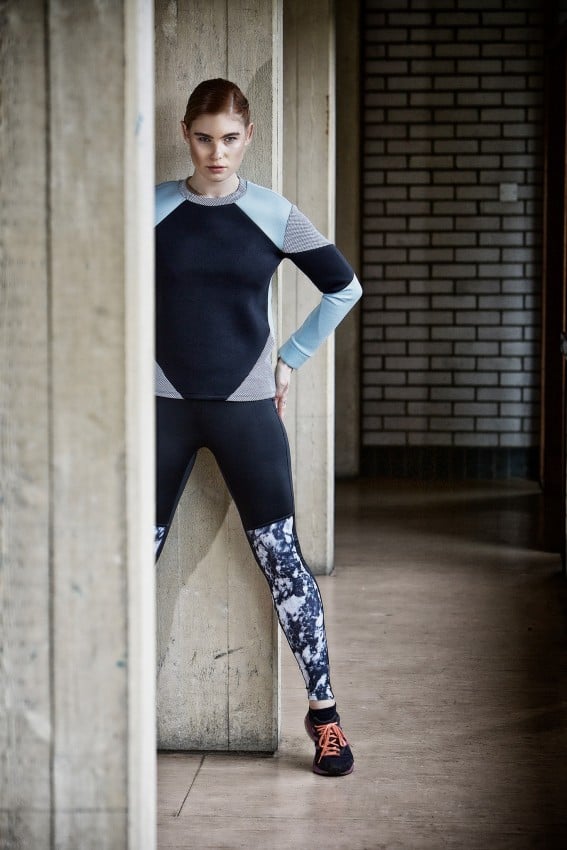I first came to England on the 23rd August 2009. Before that, in Romania, I was working full-time and studying full-time. I studied chemistry, which I only did two years of, but I also worked in a hotel bar.
Originally, I wanted to go to America, but that was too expensive, so I signed up to a recruitment agency to get a job in England. I found out about the agency through someone I already knew from the old bar, who had gone to London to work. This person said it was fine and dandy over here. Everybody can afford everything. Well, obviously not a Ferrari, but within reason.
I asked him how to apply and he told me it cost roughly £1000. That’s a lot of money. It took me a year to save that. When I went home I felt like an outcast, not because people pushed me away but because I don’t spend my money on luxurious things. In Romania, if someone earned half what I earn here, they would go out every night, buy expensive stuff, treat themselves and only leave themselves a euro.
I had two interviews; one here in England and one back home. It turned out I was overprepared for it, I was so stressed but in the end it was only a conversation. I got through this first interview and then I had a phone interview with a hotel in Oxford: Oxford Spires Four Pillars Hotel. They must have liked me because they asked if I could come and start work on Friday. The interview was on Monday. It happened just like that. I said I could. The flight was £50. I only bought a one way. One-way only, I wasn’t going back.
When I arrived, I was a newbie. I changed all my Romanian money into Pounds and, you know, it’s not a fair exchange. But I’d never been abroad, so I got fooled. I ended up with only £70 for five weeks. But that was okay, I knew how to survive on bread and tea. At the start I worked every day because we got given free food at work.
The main reason people come to England is because of the diaspora. Yes, it is an English word. Everyday you learn something new. Diaspora is a group of people of the same nationality when you go abroad. When I first arrived, English old people, they couldn’t understand anything. The younger ones were ok more or less. The Older ones were like:
“I beg your pardon. Sorry?”
And I was like, why don’t you understand me? It’s your language.
Turns out I was just talking too fast. In Romania people talk fast.
I stayed at the hotel for a year. I had to stay there a year, as at the time according to the agreement between the EU and Britain there were restrictions on Romanians working here. After three months I was promoted to supervisor, but they forgot to increase my pay, so I ended up earning the same.
I started working here at Trinity in 2011. It will be 5 years this May. I love working at Trinity, it’s nice and relaxing. The best bit though has to be the food. What’s that saying? The path to a man’s heart is through his stomach? My official title is SCR assistant, which at other colleges is called ‘under butler,’ but that role is on paper only.
I like it here, I work Monday to Friday, 8 till 4, I can row, and I’ve been told I can play college football on the weekends if I want to. I used to play football before with some Romanian guys; we called ourselves FC Romania and played in lots of competitions with teams based on nationalities. The games were five-aside or seven-aside, and the Spanish usually won. I mean, we have skill too, but they are just better. We did it for charity too.
My main day-to-day roles? You mean, apart from taking your money in the mornings? After that I just have to tidy up the SCR, make the fireplace and make it as comfortable as possible for the fellows. For a few months I would listen to the radio in French, just to hear people talking in French, and to help me remember it from school. One day they were talking politics in French and the French tutor asked me why I was listening to French radio, so I said, why would I listen to English radio? I like French, it’s more musical than English. I’ve been doing it since kindergarten.
I first wanted to get involved with the Boat Club three years ago. The captain at the time told me I should go for it. So one day when I was in the gym, I realised that I could lift as much, if not more than, some of the rowers. I asked the Boat club guys what the test was to join. I didn’t know if they let anyone do it. They told me row as much as possible, so I went on a rowing machine for ten minutes and then I was dead. Now I love being able to row in M2.
Next year I am starting a French course at the Oxford University Department for Continuing Education. It’s two hours a week and you just do French. I think they start by teaching you the alphabet and things like that, but I want to start on a higher level. I guess I’ll go along and see what happens.
My funniest memory of Trinity hall is when all the football players took their trousers down for ‘trousers-down dessert’, whilst high table were still there.
Sometimes I feel bad when students leave. Last year I did a ‘degree day,’ it was Ben Lake’s year finishing and I started at Trinity when he started. When I saw him and some of the other students leaving I nearly cried. They were such nice people and very polite, regardless of their backgrounds. Likewise, the fellows here are very humble and will help me if I need it, which surprised me.
If I was studying here what subject would I do? I think I would do philosophy. One time a philosophy tutor left their tutorial papers in the SCR, so I read them whilst working on the till. It was about metaphysics, and I thought, I could study this. I like talking in the SCR about random stuff with him and the other philosophy tutor. I like the way they think. They’re so objective about everything. They simply want to learn as much as possible. They don’t label you, but try to understand you and why you do things. I think having a mentality like this is very useful in day-to-day life even if you don’t want to be a philosopher.













